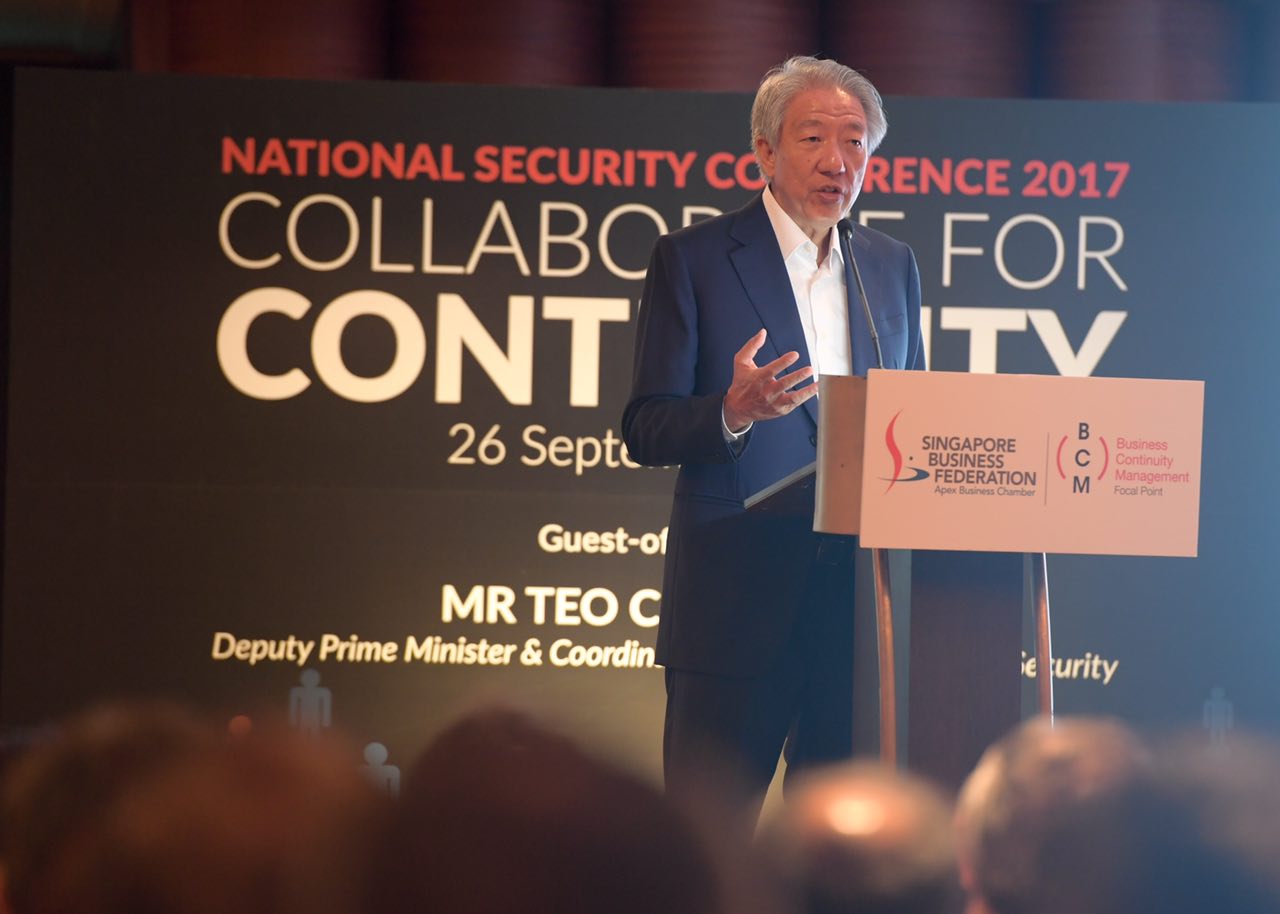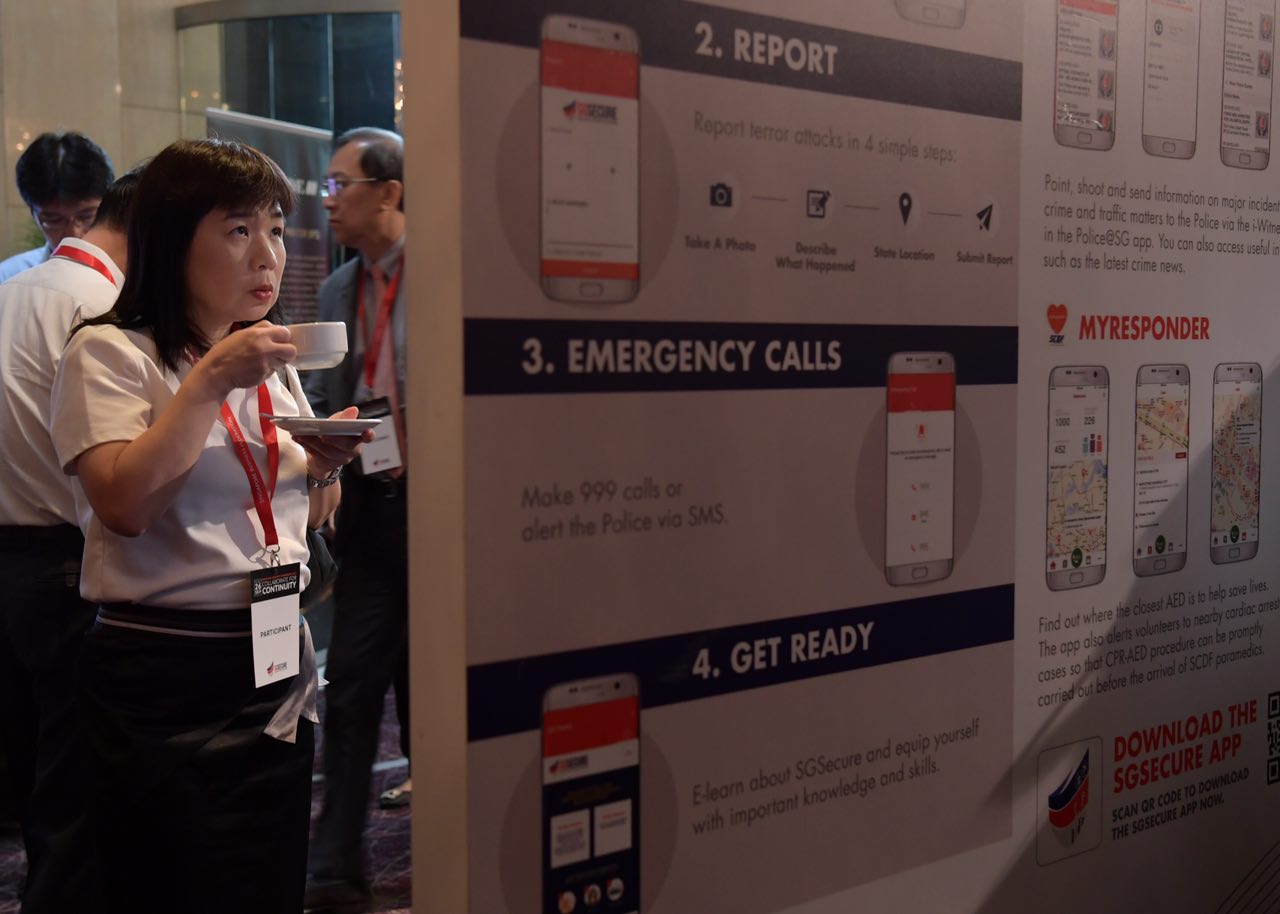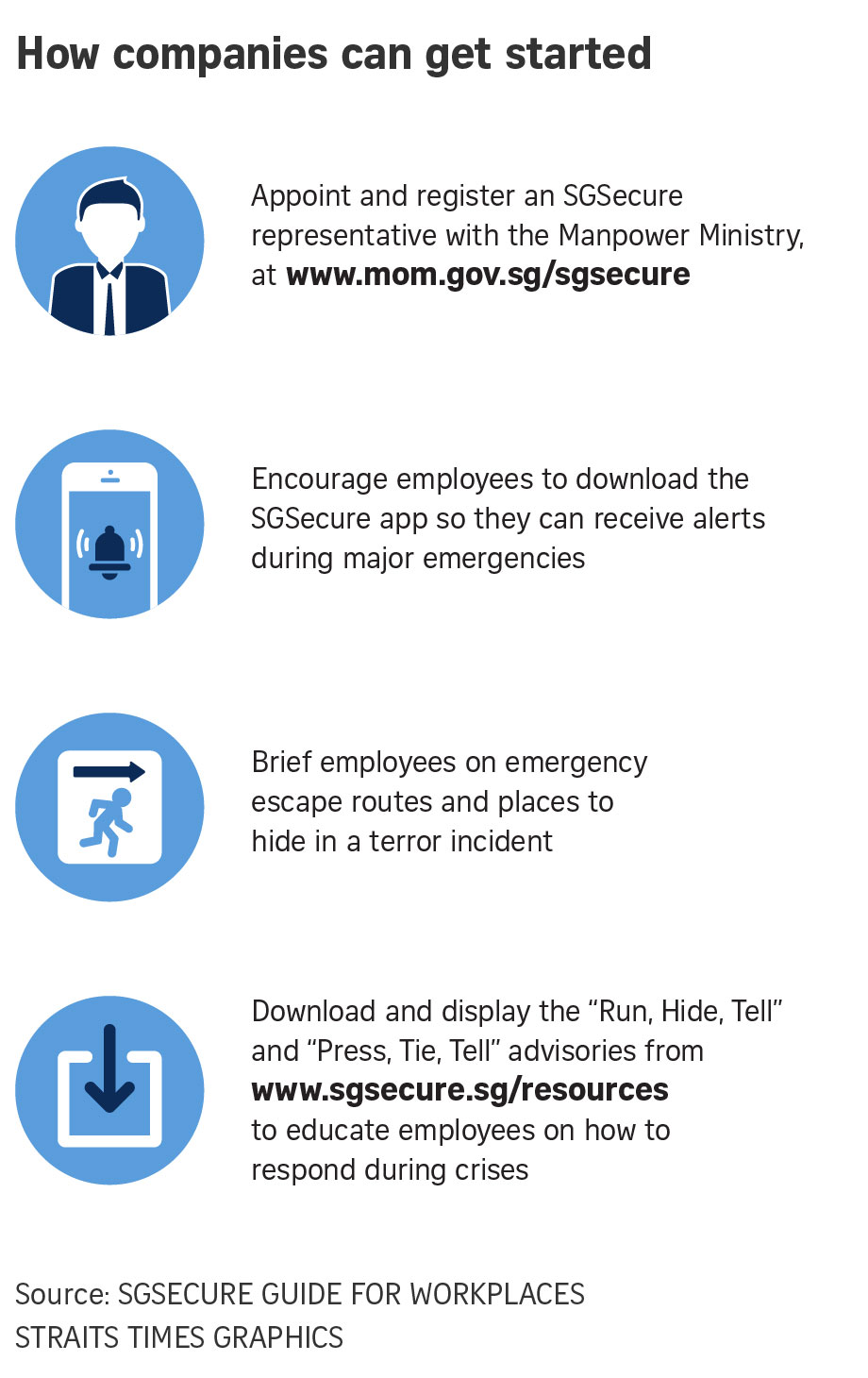Companies have a role to play in helping Singapore prepare for terror threat: DPM Teo
Sign up now: Get ST's newsletters delivered to your inbox

DPM Teo Chee Hean speaking at the National Security Conference on Sept 26, 2017.
ST PHOTO: NG SOR LUAN
Follow topic:
SINGAPORE - Businesses have an important role to play in preparing their workplaces and workers to cope with the terror threat, Deputy Prime Minister and Coordinating Minister for National Security Teo Chee Hean said on Tuesday (Sept 26).
They can also help to build cohesion, harmony and trust in the community, which helps to strengthen resilience, he said in a speech at the annual National Security Conference.
"Our security agencies are working hard to detect, prevent and deal with potential attacks. At the same time, strong community support is essential to keep Singapore and Singaporeans safe... To complement our efforts to prepare Singaporeans, we need to also prepare our businesses as well," he said, at the event at Marina Mandarin Singapore, which is organised by the Singapore Business Federation.
This comes as the terrorist threat to Singapore is at the highest level in over a decade, he said. Since 2015, 11 Singaporeans have been detained and six were issued with Restriction Orders, more than in the previous seven years, and foreigners working here found to be radicalised have been deported.
This is why the SGSecure movement was launched last year, to sensitise, train and mobilise the community to cope with such threats. The movement is now being extended to get businesses involved.
At the conference, Mr Teo launched the SGSecure Guide for Workplaces, a guidebook for businesses to raise their security preparedness. The guides will go out to over 150,000 companies by early next year.
He also laid out key areas for businesses to work on. Firstly, the workforce must be prepared so that employees can protect themselves and their colleagues in case of an attack, he said in his speech.

The Public Service will take the lead, and train public officers on emergency preparedness, such as first-aid, and the use of automated external defibrillators, he added.
Secondly, businesses must protect their workplaces and have effective contingency plans in place.
Mr Teo cited an example from the World Trade Centre attacks in 2001, when the majority of Morgan Stanley's 2,600 employees got out safely from the South Tower after the North Tower was hit, having rehearsed evacuations during drills.
Companies can get help in raising their preparedness levels through the bizSafe framework, he said. BizSafe was launched in 2007 to guide small and medium enterprises (SMEs) to build capabilities in managing workplace safety and health over several stages.
It is now enhanced to cover identifying and managing security risks posed by terror threats. Companies applying for or renewing their bizSafe Level 3 status, for example, must include mitigating measures for terror risks in their audited risk management plans. About 22,000 companies have bizSafe Level 3 status and above now.
The third point Mr Teo made was that companies can partner their communities to strengthen vigilance and boost their ability to respond to crises together.
It is also important for the business community to help build racial and religious harmony, social cohesion and community trust, he said, adding that this will help reduce the likelihood of social tensions, strife, and security threats, and also builds resilience to help the country recover from an attack.
Around the region such tensions have erupted into violence, in areas such as southern Philippines, southern Thailand and Myanmar, he noted.
"Our racial and religious harmony is a key strength for us. But as we can see from elsewhere in our own region, and countries beyond, that this is not the natural state of affairs," he said.
"Our business sector has a key role to play in helping to build cohesion, harmony and trust in Singapore. This is an important complement to the actions to strengthen the preparedness of our workplaces."
The efforts to reach businesses are part of the new SGSecure at Workplaces programme by the Ministry of Manpower (MOM), which aims to encourage 30,000 companies to register an SGSecure representative with the ministry by 2020. He or she will be the point of contact with the authorities in times of emergency, and will also receive regular information such as learning points from overseas terror incidents to share with colleagues.

Registration can be done at www.mom.gov.sg/sgsecure.
By 2020, the ministry also aims to have another 27,000 companies at a higher level of preparedness, which it calls being SGSecure-ready. This involves:
- Preparing the workforce, through briefing employees on emergency procedures, equipping a team with lifesaving skills and building a cohesive workforce;
- Protecting the workplace, through managing physical and cyber security risks and planning ahead for business continuity; and
- Partnering the community, through developing support networks with neighbouring businesses and partners in the supply chain.
Action points for these areas are laid out in the new SGSecure Guide for Workplaces.
The guidebook, which was developed by government agencies, trade associations and unions, will be available on the MOM website from Tuesday, and hard copies will be given out to all active businesses from October.
There will also be simulation exercises, seminars and life-saving training organised for businesses, especially those in five priority sectors identified by MOM and the Ministry of Home Affairs (MHA). These five - food and beverage, retail, entertainment, hotels and transport - tend to have a high concentration of people and a higher likelihood of being targeted, based on past terror trends.
Recent incidents in these sectors include attacks on the main shopping street in Stockholm in April, Manchester Arena in May, and London Bridge and Borough Market in June.

